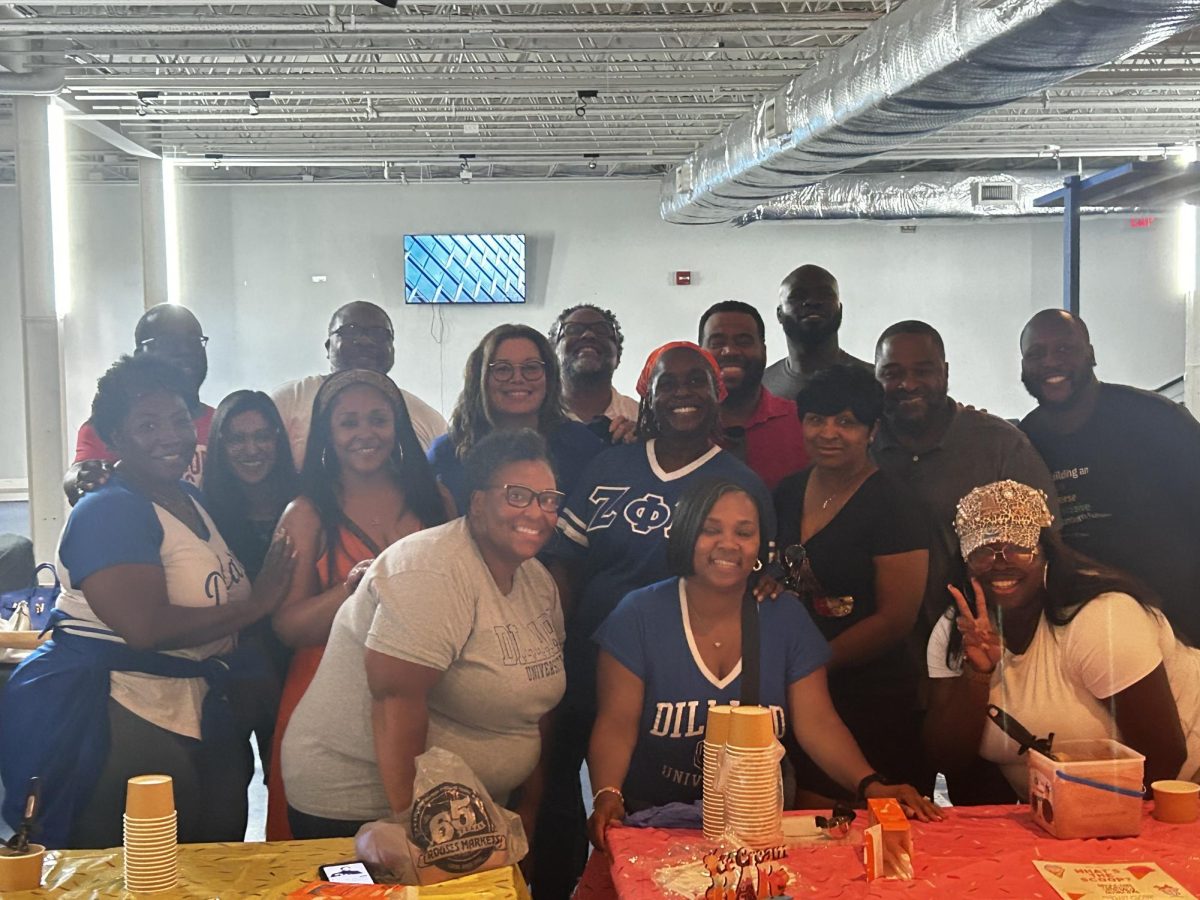Many undergraduate students have not decided what to do after their first four years of college. They have no idea on how to apply and prepare for graduate school. Tuesday, Oct. 23, Dillard held its fall semester graduate workshop on how to help students. The graduate workshop, titled ‘Grad¬uate School Preparation, the Search & Application Process,’ was hosted by Kharen Fulton, director of admis¬sions at Emory University, hosted the event. The workshop began with the question, ‘What after Dillard?’ Many students did not know. Ful¬ton explained that the four under¬graduate years is the time to start planning for graduate school. “Your freshman and sophomore years are the time to research the programs you’re interested in,” said Fulton.
“Start getting close with faculty and professionals in your field of study.”
In the process of preparing for grad¬uate school, students should start requesting forms, brochures and ap¬plication materials for the school they want to attend. This is best done and completed in July and Au¬gust. Some factors to consider while doing research are the reputation of the school, social life, number of stu¬dents enrolled, curriculum choices, location, etc. “If you’re a city person, you should be searching for a college that’s in a city,” stated Fulton. “You don’t want to be in some small town, you will be miserable. Graduate School is not like undergrad, you don’t get to go home every weekend or once a month so be wise in your choice.”
In order to get into a graduate pro¬gram, there are steps students have to complete. The first step is taking the Graduate Record Examinations (GRE). Before taking the GRE, stu¬dents should assess their starting point by self-study and review, and then take practice exams. Students should decide early when they are going to take the GRE. Fulton rec¬ommended that students should plan to take the test no later than October of their senior year. “Don’t wait until the last minute to take the GRE, that’s not a good choice,” said Fulton. “Make a deadline for yourself before the actual deadline.”The second step in completing the process for graduate school is getting recommendations and writing your personal statement. Fulton called these two things your “package.” Part of a graduate school application is having recommendations.
Sometimes good recommendations can be the foot in the door for students. Fulton stated that it is important to communicate with professors, administrators or with whom you would want to write recommendations for you. “Start nurturing faculty now,” said Fulton.
Antoinette Denapoli, a gradu¬ate student at Emory University, said when asking your mentors to write recommendations, emphasize on what exactly you want them to write. “Tell your mentors to write a strong letter and give them at least a month in advance,” said Denapoli.
The personal statement is the most important part of the application packet and students should consult with mentors and peers to get their input and feedback. Writing a per¬sonal statement takes time and will require dedication and focus. When writing a personal statement it is the student’s time to let the admissions committee know who they are and why they should be selected into the program. “The program looks at who you are as a person and what you bring to the college,” said Denapoli. “These are the most important pieces of the package; I have revised my per¬sonal statement at least 5 times now.”
The third step for entering a gradu¬ate program is to search for schools with funding. “No one should enter graduate school without some fund¬ing resources,” explained Fulton.
Aid and funding should be impor¬tant factors in a students’ selection process. Some sources of funding are internships, assistantships and fellowships. Denapoli who is com¬pleting her eighth year, is on the Melon Teaching Fellowship. Fulton suggests that when searching for a graduate school, students should put funding at the top of their list.
“When selecting a school, don’t be afraid to ask the school how much is you’re funding and how long is it,” said Fulton. Denapoli ended the meeting with two words on being a graduate stu¬dent, “perseverance and commitment, that is only two things I have to say,” said Denapoli.
Fulton explained that in order for you to have a good transition from undergraduate to graduate school is that you have to want it. “It has to feel good, you’re not going to complete your goal if you don’t feel it,” said Fulton. “Now is the time to step out of your comfort zone and explore.”

































